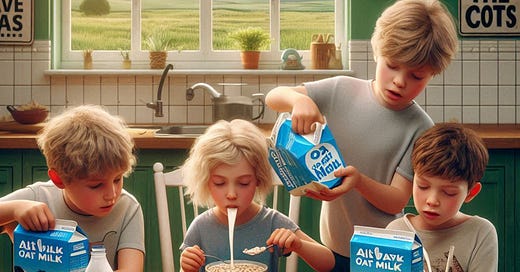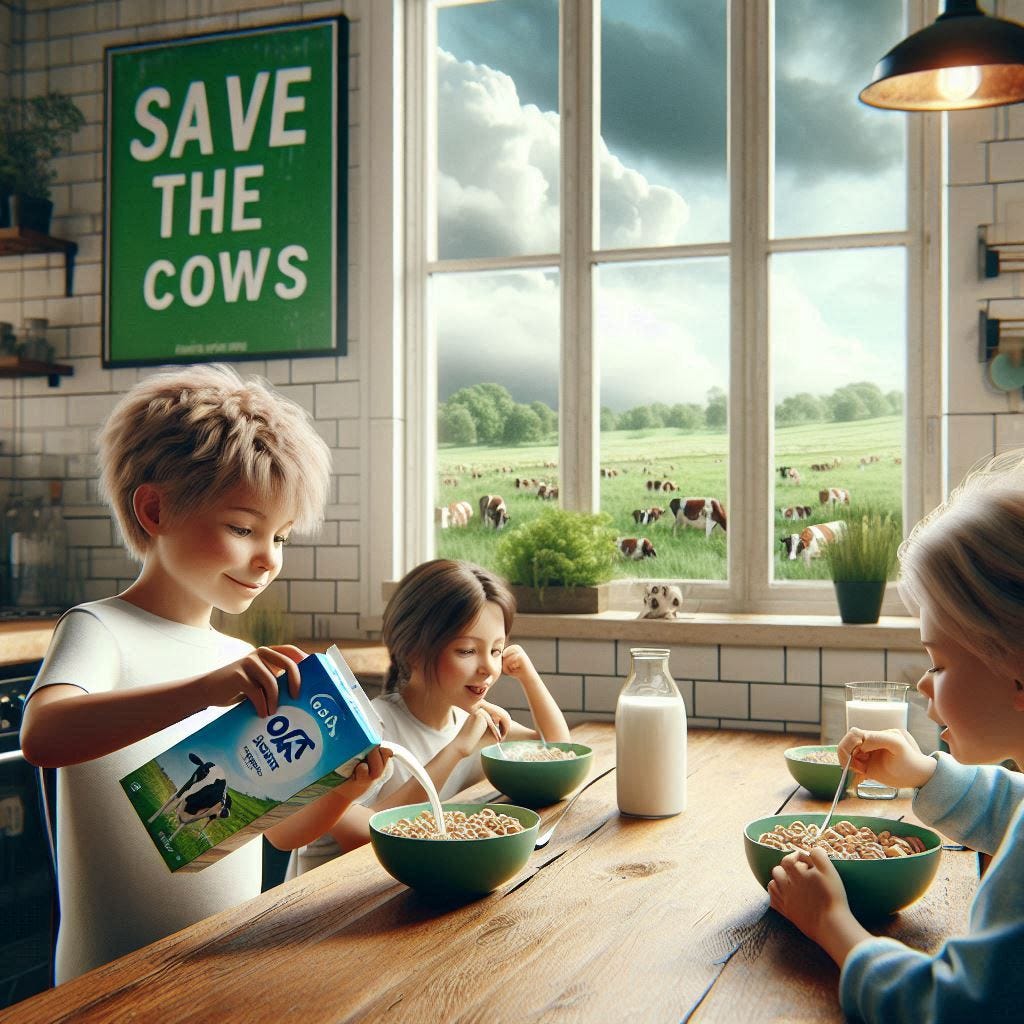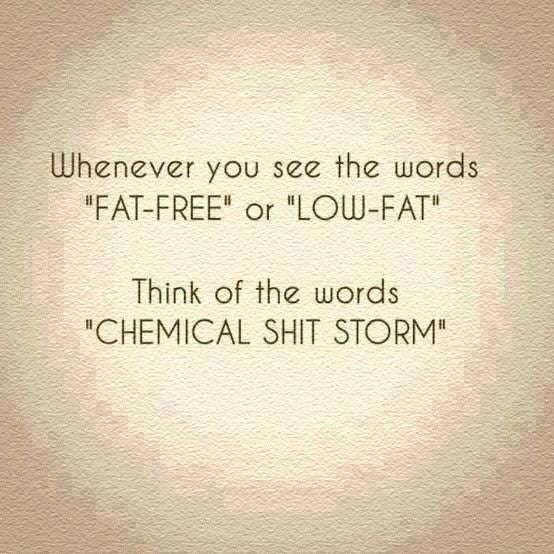Why would you drink fake laboratory milk?
I know there are legitimate reasons to have concerns about dairy (hormonal or allergy issues), but you can just skip it if you’re concerned.
You don’t substitute Frankenstein’s Monster type oat milk full of weird emulsifiers and drink that.
Turns out these are causing extreme increases in colon cancers, especially among young people.
What’s so shocking about this development is that nobody could have predicted it.
Cow milk consumption in America has drastically declined in recent years as consumers have gravitated towards plant-based milk for health reasons, have an intolerance to dairy, and have ethical concerns about animal abuse in modern dairy farming practices.
What does milk have to do with animal abuse?
Even if it were true, it doesn’t make sense to boycott the product. Cow dairy is an ancient food.
Unlike kooky vegans and PETA people, I don’t run around claiming that animals are magical creatures more sacred than humans. I care about animals and agree that Big Food is bad for everyone, including the animals.
The solution isn’t to stop eating/drinking cows (typical globalist doomsday stuff), it’s to wind down State Centralized Agriculture that incentivizes the abuse in the first place—not to mention all the kooky gov-sponsored health fads that give people all of these diseases.
However, certain ingredients in these alternatives may be more damaging than dairy.
Well, I never.
While they may be lower in fat and calories than cow’s milk, research has established that plant-based options are not always nutritionally equal to what comes from the dairy farm. About a third of plant-based milks have sugar levels similar to strawberry or chocolate milk.
“Eating fat is what makes you fat” was always a ridiculous myth from the government.
And lol at these health-food “milks” having way more sugar than the real thing.
Still, there is a perception that plant-based means health-conscious even though many of these milk products contain additives and emulsifiers that qualify them as ultra-processed foods (UPFs).
Emulsifiers, which include gelatin, whey protein, xantham gum, and carboxymethylcellulose, are commonly added to nondairy milk to prevent separation and create a smooth, creamy texture.
Ultra-processed foods are disruptive to the microbial system, and many experts believe overexposure to UPFs is partly to blame for the rising rates of colon cancer in young people.
A staggering 20% of colorectal cancer cases in 2019 were discovered in people younger than 55, up from 11% in 1995.
Alarmingly, this younger demographic tends to be diagnosed in the disease’s later stages, making it harder to treat and cure, according to docs who expect colon cancer to cause about 53,000 US deaths this year.
So the share of people under 55 getting colorectal cancer nearly doubled in 14 years as they were starting up with these weird chemicals.
This might suggest boomers were less vulnerable to the fake milk marketing. A rare instance of their resisting the pull of the boob (tube).
But it could also be that younger people tend to look and feel otherwise healthy, even if there’s cancer lurking in their nut-milk-laden guts, until it’s too late to head it off (which is what the article kinda suggests).
Either way, nobody should be drinking this dreck.
A separate study from 2021 found that when introduced to a colony of bacteria similar to those found in the human gut, emulsifiers triggered the bacteria to die or be compromised.
…
Dr. Maria Abreu, a professor of medicine, microbiology, and immunology at the University of Miami, made waves last year when she voiced her suspicions that the chemicals and bacteria in processed food are causing gut enzymes to flare up, leading to inflammation and, perhaps, cancer.
“Even the foods we think are good for us can be a problem,” Abreu explained. “Things like emulsifiers that are added in, things that are creamy, you know, the nonfat yogurts and all these things, really can change the gut microbiome very profoundly.”
Stay very very far away from processed foods, as much and as far as you possibly can.
Eat whole foods, which you can buy in grocery stores or farmer’s markets. Better yet, grow them at home in your garden.
Anyone can buy most of what’s needed to avoid eating these fake foods, and most people can usually grow a lot of food at home.






